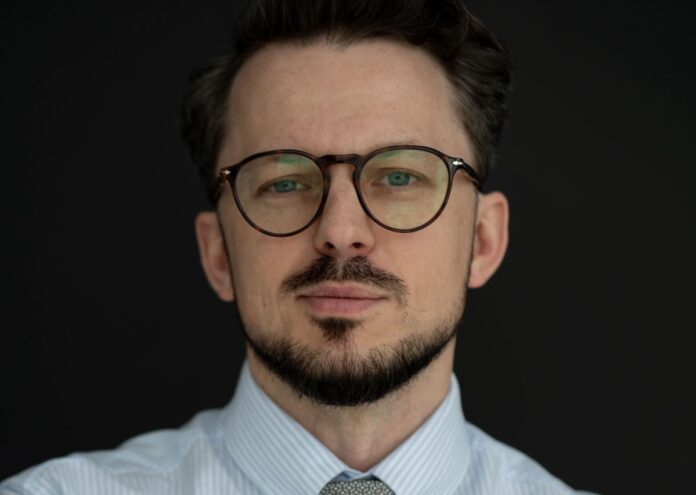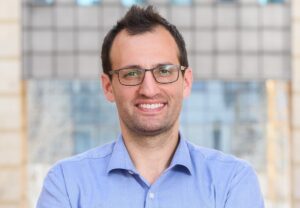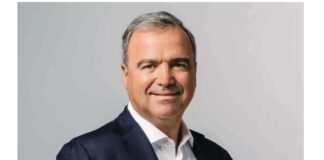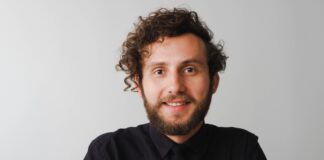Raw Ventures, an investment firm specializing in early-stage startups, focuses on industries such as MediaTech, HealthTech, and Sustainability. Alexey Skobelkin, a representative of Raw Ventures, will participate in the Global Media Pitch Day at #MTHCON24
How does Raw Ventures evaluate startups when considering them for potential investment, and what key qualities do you look for in a founding team?
When evaluating startups for potential investment, Raw Ventures places a strong emphasis on the founding team, more so than the idea itself. While good ideas are abundant, it’s the people behind those ideas that matter most. Some key qualities we look for in a founding team include commitment, focus, ability to execute, adaptability, and operational expertise.
Founders need to demonstrate deep dedication and a clear focus on their vision. We value founders who can convey their idea concisely but also show the commitment necessary to execute it. Raw Ventures prioritizes teams that have the capability to turn ideas into reality. This involves leadership skills, the ability to delegate, and an understanding of how to navigate challenges, particularly in the early stages of a startup’s life.
Startups often need to pivot or adjust their strategies. Raw looks for teams that are open to feedback, willing to make changes when necessary, and agile enough to respond to market shifts, as illustrated by a case where a startup made a major pivot based on the firm’s advice.
Founders who can manage growth and handle the complexities of scaling a company are highly valued. We help startups develop these skills, but it’s important that the founding team shows potential in this area.
However, while the team is a crucial component, it’s not the only factor we consider. From a product perspective, we primarily focus on how the product solves the customer’s problem, who the target customer is, which market the product will grow in, and what metrics the team uses to describe and validate the product’s success. Through this analysis, we assess the growth potential and our own capabilities in supporting the company.
This comprehensive approach allows us to evaluate not just the team, but also the product’s market fit, scalability, and potential for success. It helps the Raw Ventures team determine how we can best support the startup’s growth and whether it aligns with our investment strategy.
Could you explain the thought process behind offering up to one million euros in funding for the best startup team at the Global Media Pitch Day?
We offer up to one million euros not only to the winner of the Pitch Day but we may offer the funding to any startup who has applied to participate. We are ready and eager to invest in all startups from the pipeline that pass our investment analysis process and align with our strategy. For example, last year, two Pitch Day finalists received investments: the UK-based musictech startup Setmixer and the US-based Filmustage, which develops an AI platform that enhances the film pre-production phase. The Pitch Day winner will receive a €10k prize for the best pitch as decided by the jury. Following the event, the Raw Ventures investment team will begin their thorough due diligence and evaluation process.
When we developed the concept for our event, we thought about the types of startups we wanted to attract. That was probably the main question for us, and the answer led us to set these parameters. When we say “up to one million euros,” we are, of course, thinking about pre-seed and seed-stage startups that already have a clear understanding of the product they are building and are on the path to full-scale growth. These are the stages that are most attractive and interesting to us, as they are where we excel in helping startups grow, offering not only funding but also industry expertise, business connections, specialized advisers, and more. At the same time, such a check may also interest later-stage companies, where this one million euros can be part of a larger round.
What role does Raw Ventures see itself playing in the growth of early-stage companies beyond just financial support?
The core of our portfolio today consists of companies that we actively support from the very early stages, some even from the idea stage. When we invest in such companies, we immerse ourselves in the business, sharing our own expertise and bringing in external experts, as well as helping with business connections. We understand this role very well and often refer to it as a “Venture Studio,” because, in essence, we not only support the founder but also outsource certain functions until the company reaches a certain stage of development.
How does Raw Ventures differentiate itself from other venture capital firms in terms of the support it provides to startups?
We define our key advantage over other funds as the ability to identify the competencies and challenges where help is needed and find the optimal solution, whether it’s within our team or externally. Our investment thesis, or how we position ourselves, is that we take raw ideas from seed to global businesses. We enjoy working with companies and building businesses together with them.
What are some of the most successful companies you’ve invested in, and what factors contributed to their growth?
I would first like to mention two of our portfolio companies — Fermata and AIBody. These examples vividly demonstrate our influence as a team and investor on the growth of startups. We have supported both companies from the very early stages, making it even more exciting to see their growth and the results they are achieving now.
AIBody is developing two highly essential products for medical professionals, creating a digital twin of the human body, starting with the most important organ—the heart. The company operates in a very complex niche, with multiple factors and a serious scientific foundation. We see the team’s commitment to the company’s idea and mission as a key success factor here. Now, based on long research and technology testing, two products are growing, created to meet the needs of clients – doctors and medical students.
Fermata contributes to the development of agriculture and helps protect crops from pests and diseases with its product. Fermata’s product is in high demand in the market, with consumers ranging from major global companies to individual local farmers. The company’s growth is facilitated by the development of AI technologies, the team’s focus on customer needs, and the agricultural market’s commitment to sustainable development.
I should also mention Jay, where the team, with our help and active participation, is reaching a completely new international level. Jay’s product changes user behavior patterns when watching movies and shows, allowing viewers to purchase items they see on their favorite actors or in the movie frame. Despite the complex task facing the team, they are moving forward quickly, through systematic work on product development and rapid adaptation to the needs of two key industries: movie and show production and e-commerce.
As you prepare for the Global Media Pitch Day, what kind of innovation or entrepreneurial spirit are you hoping to see from the participating startups?
I am always interested in seeing how innovations in a particular industry transform from technology into product metrics and business indicators while solving real-world problems for people and businesses. We expect the finalists of Pitch Day to demonstrate this “magical” ability—to turn technology into a solution to a problem that no one has solved so quickly and effectively before.
How do you decide which sectors or industries Raw Ventures focuses on, and are there any emerging trends that particularly interest you right now?
We focus on areas where we have the “right to succeed.” This right can be earned through our team’s expertise, the experience we gain from projects we work on daily, and having the necessary experts and connections in a particular industry.
For example, MediaTech, HealthTech, and Sustainability are our focus industries, and we are currently more actively moving in these directions.
Of course, we pay attention to technological trends and keep track of all markets, but our priority is always to look at the product, its application, and how it solves customer problems. Only then do we delve into the technology behind it and how relevant it is.
What challenges do you foresee for the startups competing at the Global Media Pitch Day, and how can Raw Ventures help them overcome these challenges?
I don’t think I have anything original to say here—the problems and challenges most startups face lie in product management and finding exactly the customer problems they can solve, and preferably, solve them in a way that customers are willing to pay regularly. This is generally our focus when scouting startups because we can help with practically all other aspects of company development—legal support, patent protection, financial models, management, business development, marketing, and sales, etc.
If we’re talking about specific, current threats, of course, AI—particularly AI models being developed by industry leaders like OpenAI, Anthropic, Google, etc.—is capturing market share and users across various industries. The most frequent question from investors to startups today is probably, “Why won’t ChatGPT solve this problem tomorrow instead of you?” However, big models are not only a threat but also a big opportunity for startups if they learn to leverage the technology from major companies and combine it with their own innovations and approaches. Raw Ventures has expertise in this area, and we help structure solutions and products in a way that competition with the giants doesn’t crush the company in the medium- to long-term.
What criteria will you use to determine the best startup team at the Global Media Pitch Day?
By this point, at the final stage of our year-long preparation program for Global MediaTech Pitch Day, we have already analyzed over 400 startups in this industry. Our analytics team selected around 80 companies for the long list and then narrowed it down to 20 companies for the short list. From these, the jury and experts chose 8 finalists. This entire process was built on our internal methods of evaluating and analyzing startups, and the work doesn’t end on Pitch Day. We will be reviewing all the short-listed companies in our internal investment committee and determining which ones will become our investment targets and with whom we’ll proceed to the next stage of due diligence and then investment.
When it comes to determining the winner of Pitch Day, the jury will primarily focus on the product the startup is presenting and its potential. Of course, the pitch itself will also be considered—how well the team and the presenter can convey the value and inspire the audience. The jury will undoubtedly choose the best startup and team based on a full range of factors.
Could you share some insights into how Raw Ventures supports startups with long-term strategic planning and scaling their operations?
Raw doesn’t just invest and wait for financial returns; we actively work with startups throughout their journey. This includes offering legal support, assistance with business development, marketing, sales, and even helping to build financial models like cash flow forecasts. Our approach ensures that startups have the necessary tools and knowledge to scale effectively. Ultimately, we see long-term success as a collaborative effort between the founders and our team, making sure to contribute not just financially but also strategically at every step.
What advice would you give to early-stage entrepreneurs looking to attract venture capital investment?
In short, what sets a great founder and entrepreneur apart is the ability to formulate and manage the vision, while also having the skills to execute at any point in time. I would advise not to forget these two elements and, most importantly, to demonstrate this to investors through well-known tools and metrics.
How do you think the startup ecosystem in Europe compares to other regions like the US or Asia, and what opportunities do you see for growth in the European market?
Recently, we’ve seen that venture activity and the number of tech entrepreneurs are growing in Europe, helped by various government programs and market conditions. Each year, we analyze the MediaTech landscape by reviewing startup applications and conducting our own scouting. This year, our sample consists of around 1,000 startups, allowing us to have a fairly objective view of this sector. The number of European startups in our pipeline has remained relatively stable for the second year in a row—58%, with the UK accounting for 19% of the total. The share of startups from the US has slightly decreased this year but still remains high at about 37%, which was surprising for us both last year and this year—US startups are actively seeking investments in Europe for some reason.
If we talk about development opportunities, regulatory changes, such as those concerning AI, play a significant role. In addition, the venture market dynamics differ significantly between the old and new worlds, influenced by various macroeconomic factors. This disparity is particularly evident when comparing European and US startup ecosystems.
In Europe, our analysis reveals a strong trend towards internationalization from the outset. A striking 74% of European startups have embraced subscription-based models, understanding the value of recurring revenue for stable and predictable income. Furthermore, 70% of these startups are simultaneously employing freemium models. This dual strategy allows them to attract users with free offerings while monetizing through premium features, demonstrating a sophisticated response to market demands and growth opportunities.
In contrast, the US market exhibits greater diversity in revenue models. Only 39% of US startups utilize subscription-based models, while 23% opt for transaction-based commissions. This variety likely stems from the large, homogeneous domestic market in the US, which allows for more experimentation with different business models.
These differences highlight how startups in different regions adapt their strategies to their respective market conditions. European startups lean towards models that facilitate international scalability, while US startups have more flexibility to explore diverse revenue streams within their expansive home market. Understanding these regional variations is crucial for investors and entrepreneurs alike, as it informs both investment strategies and startup growth plans in an increasingly globalized business landscape.
Picture@ DARIA TIHONCHYK
Thank you Alexey Skobelkin for the Interview
Statements of the author and the interviewee do not necessarily represent the editors and the publisher opinion again.



















